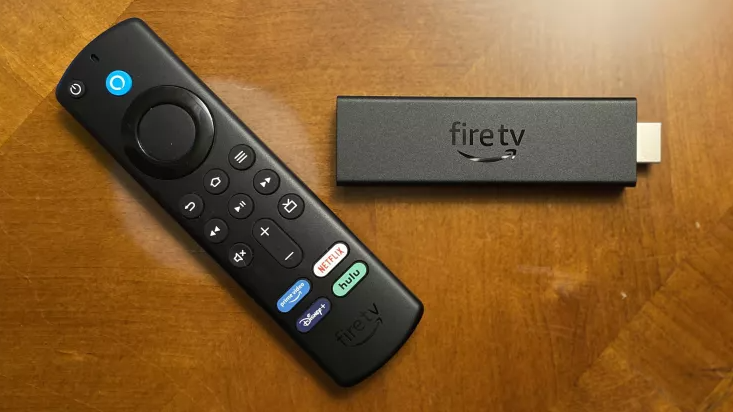I spoke to Amazon, Google, and Roku about Fire Stick's latest piracy crackdown measures – here's what they said

Sign up for breaking news, reviews, opinion, top tech deals, and more.
You are now subscribed
Your newsletter sign-up was successful
Amazon's latest crackdown on illegal streaming has caused quite a stir. After more than a decade of piracy on its Fire TV Sticks, the latest measure is intended to put a definitive end to the scourge of 'dodgy Fire Sticks'.
But, does Amazon really think its new measures will work? And are its competitors worried they might be next to carry the flame of digital piracy?
"Piracy is illegal"
When we asked how confident Amazon was in its new measures, a spokesperson came back with a bold, if bland, response:
“Piracy is illegal, and we’ve always worked to block it from our Appstore.
Through an expanded program led by the Alliance for Creativity and Entertainment (ACE), a global coalition fighting digital piracy, we’ll now block apps identified as providing access to pirated content, including those downloaded from outside our Appstore."
Amazon was unresponsive when pressed to comment on how effective its new policy was going to be.
The comment we received is identical to the one given to The Sun earlier this week, in an article which also confirmed the rollout would begin across Europe before spreading worldwide.
Since the rollout of the new measures began, Reddit threads have emerged confirming several popular piracy sites remain usable on Fire TV Stick despite the update. An anonymous source told TechRadar they still had access to illegal content.
That said, as reported by The Athletic, four individuals were arrested at the end of October in relation to illegal sports streaming. So, if pirates are still active in some streaming waters, the navy is beginning to close in.
This then raises the question: will the update achieve its goals?

ACE's Trusted Notifier program appears to be at the heart of the blocking system. It relies on continuous relationships with advertising partners, domain registrars, and now streaming devices.
These sites are only blacklisted once they're identified by ACE but there's little to stop a new site appearing in its place once the original is blocked.
ACE's complete list has not been made public, though it's likely by the reports on Reddit, that many of the big names in piracy do not currently appear on it.
Amazon recently launched its latest Fire TV Stick, which now runs on its own Vega OS.
Linux-based, rather than Android, the new operating system should make sideloading a more challenging option for users, though by no means impossible. The move has resulted in several security apps, primarily VPNs, rushing to create working solutions – with NordVPN and IPVanish the only two to manage as yet.
The wider response
If Amazon is slowly closing the gates on pirated content, people will likely still look for workarounds. One comment on our previous coverage summed up the sentiment perfectly: "OK, so I'll use something else instead."
So, is this more of a passing of the torch to another media streamer, instead of a Fire TV Stick?
Google and Roku are two of the industry's other biggest players. So, will pirates move to these media streamers instead? It won't be that simple.
When we reached out to Roku, they had very little to say. Perhaps because sideloading – the practice behind access to many piracy apps – is a much more convoluted process on Roku devices, meaning pirating content on a Roku device is much harder than on an Amazon Fire TV Stick.
Google was also unresponsive. The company is adding a developer verification system in 2026, which will make it impossible to sideload apps created by unverified developers onto Android devices. The global rollout of this feature isn't expected until 2027, so it's still a possible alternative for pirates until then.
While the course that the pirate streaming network will take right now is uncertain, it's clear that the tide is shifting. Amazon has brought out the heavy artillery, leaving the pirates in potentially rocky waters.
Sign up for breaking news, reviews, opinion, top tech deals, and more.

Rob is TechRadar's VPN Editor. Coming from a background in phones and technology, he's no stranger to the risks that come with putting yourself online. Over years of using different platforms, testing the limits of his online persona, and feeling the brunt of several data breaches, Rob has gained a keen understanding of cybersecurity and the benefits of services such as VPNs in providing a secure online experience. He uses this to not only advise on the best ways to stay secure online but also share his own experiences and especially how to avoid trouble. Outside of work, you'll find Rob on the tennis courts, in the gym, or diving into the biggest and best games of the year.
To share a story or tip, email robert.dunne@futurenet.com
You must confirm your public display name before commenting
Please logout and then login again, you will then be prompted to enter your display name.